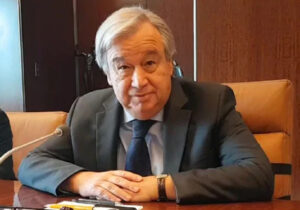Theresa May’s bid to make her Brexit deal more acceptable to MPs have suffered a blow after EU leaders said it was “not open for renegotiation”.
She wants legal assurances on the Irish backstop to help her deal get through the UK Parliament, where many of her own MPs say they cannot support it.
The PM said the deal was “at risk” if MPs’ concerns could not be addressed.
European Commission president Jean-Claude Juncker said there could be clarifications but no renegotiation.
He urged the UK to set out more clearly what it wants, adding that the European Commission will publish information on 19 December on its preparations, should the UK leave the EU without a deal in place.
“Our UK friends need to say what they want, instead of asking us to say what we want, and so we would like within a few weeks our UK friends to set out their expectations for us, because this debate is sometimes nebulous and imprecise and I would like clarifications,” he said.
The Democratic Unionist Party, on whom Theresa May relies for her Commons majority, said the EU’s response was unsurprising and Mrs May must not “roll over as has happened previously”.
“The EU are doing what they always do,” said the party’s leader Arlene Foster. “The key question is whether the prime minister will stand up to them.”
Mrs May travelled to Brussels to make a special plea to EU leaders after delaying Tuesday’s Commons vote on the deal, in anticipation of a heavy defeat.
She then went on to win a confidence vote brought by her own MPs but vowed to listen to the concerns of the 37% of Tory MPs who voted against her and was hoping to address their concerns about the controversial “backstop” plan in the withdrawal agreement. Critics say the backstop – aimed at preventing a hard border in Northern Ireland – would keep the UK tied to EU rules indefinitely and curb its ability to strike trade deals.
Conservative MPs have demanded changes to make it clear that it could not last forever, and the UK could terminate the arrangement on its own. -BBC




